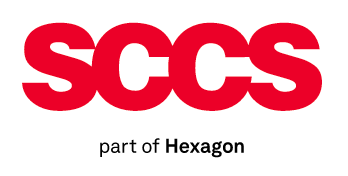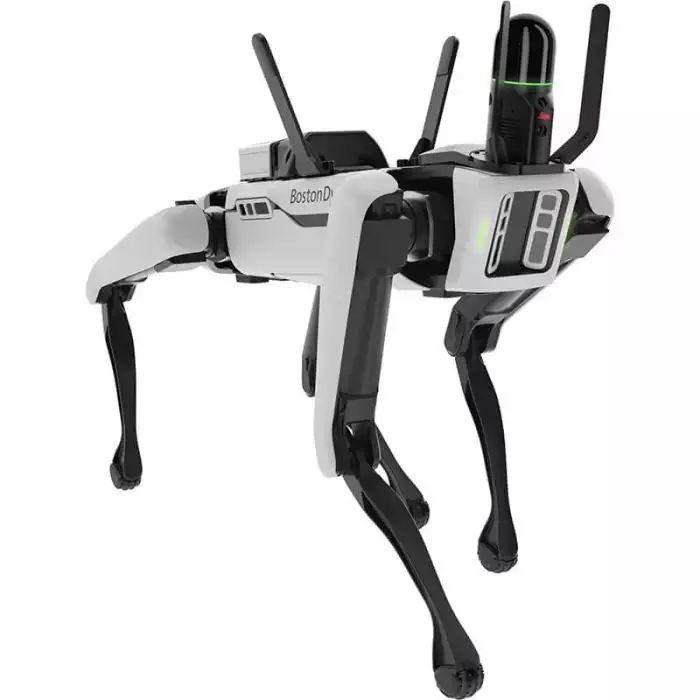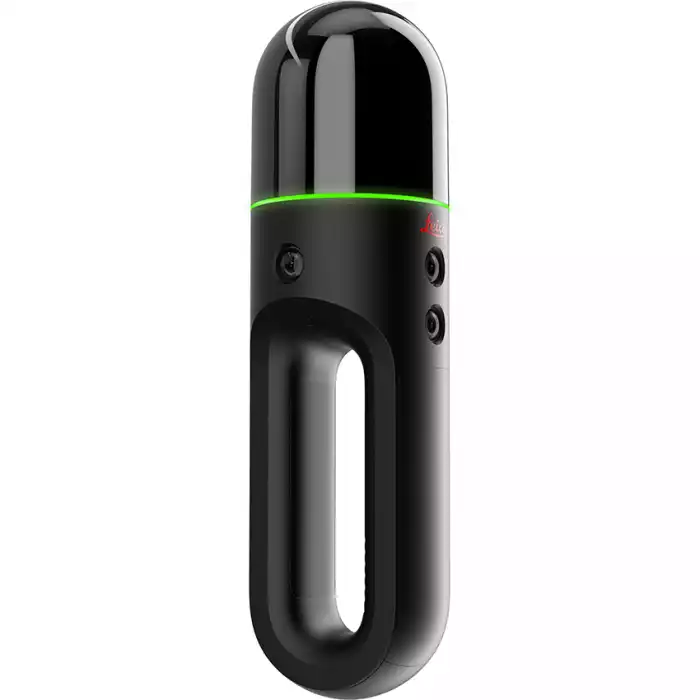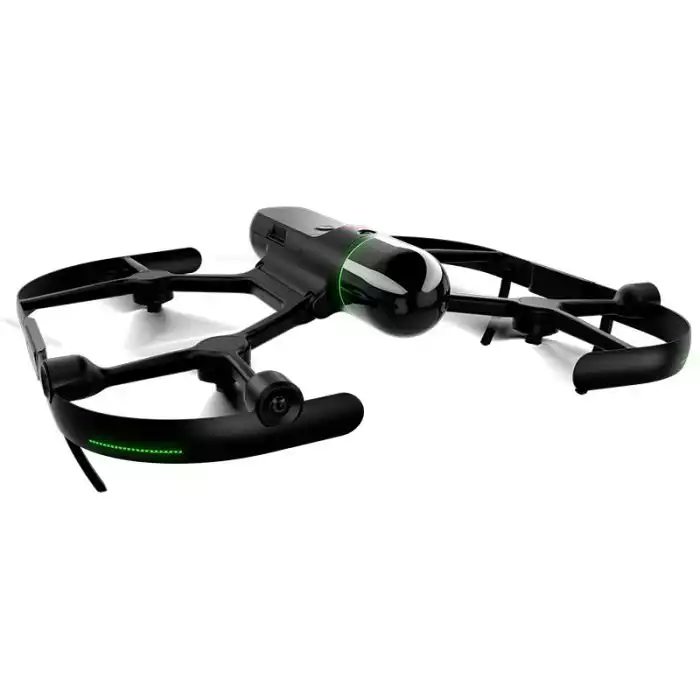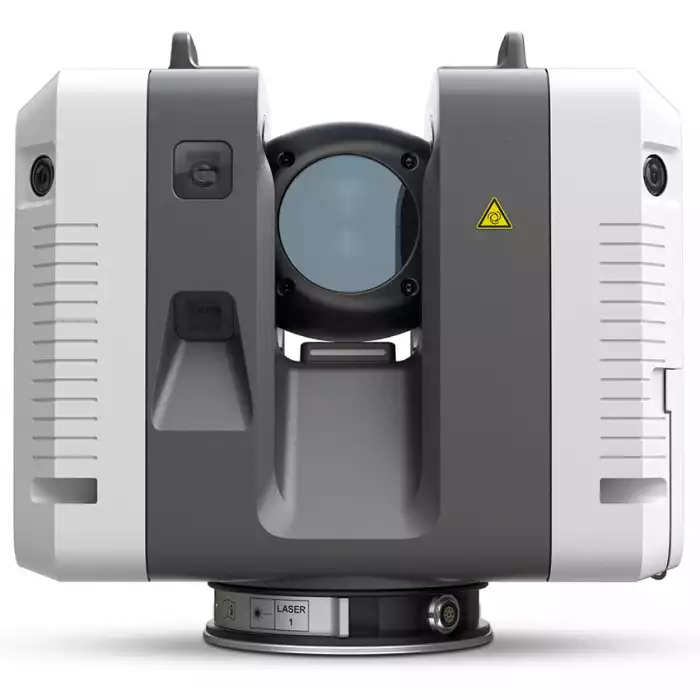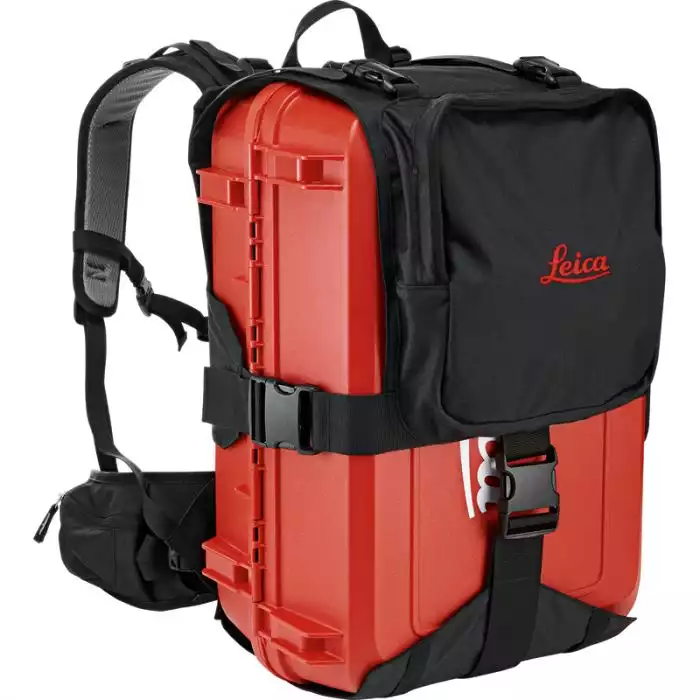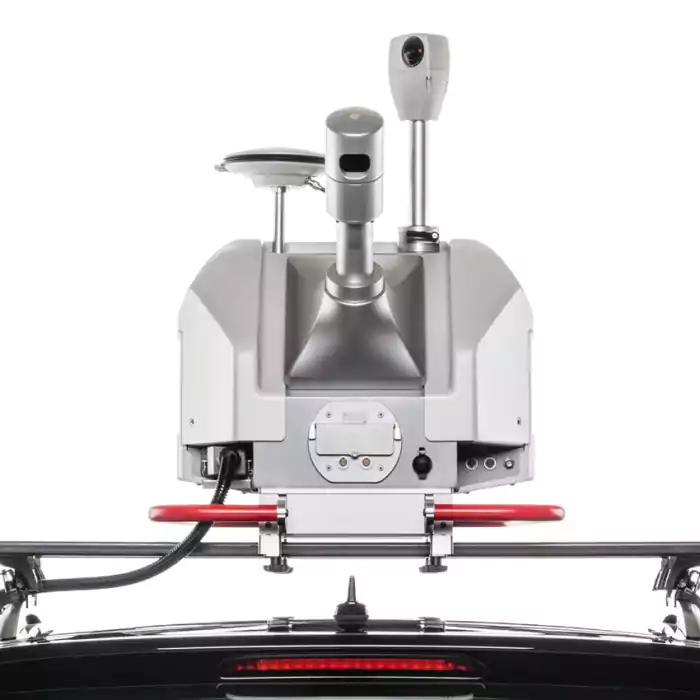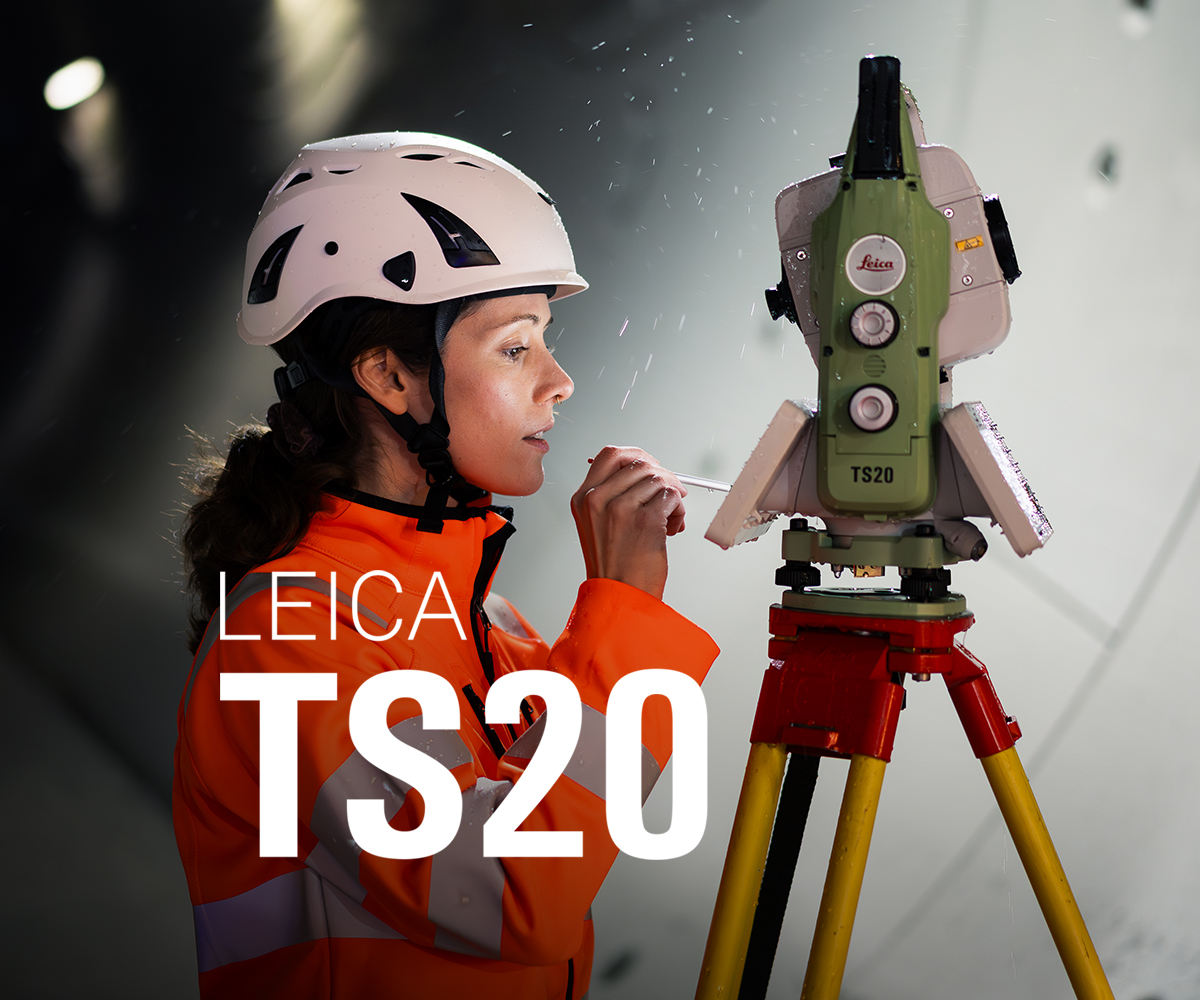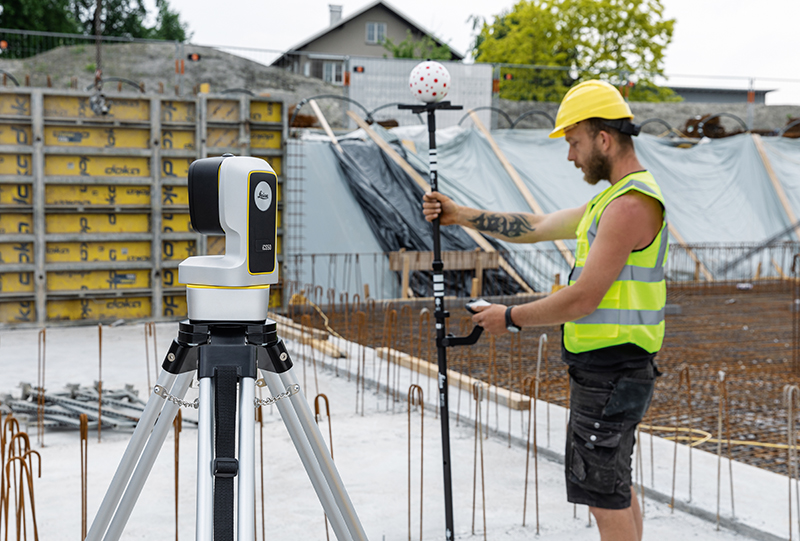Reality Capture
What is Reality Capture?
Reality capture solutions visualise any environment as it is so you can model with accuracy and precision, using technology such as laser scanners and high-definition 360-degree cameras, to quickly and cost-effectively create a digital representation of the physical world that is useful in design and construction workflows.


How Can I Use Reality Capture?
We supply a selection of industry-leading scanners and software to industry professionals to create the most realistic digital environment for the most accurate planning.
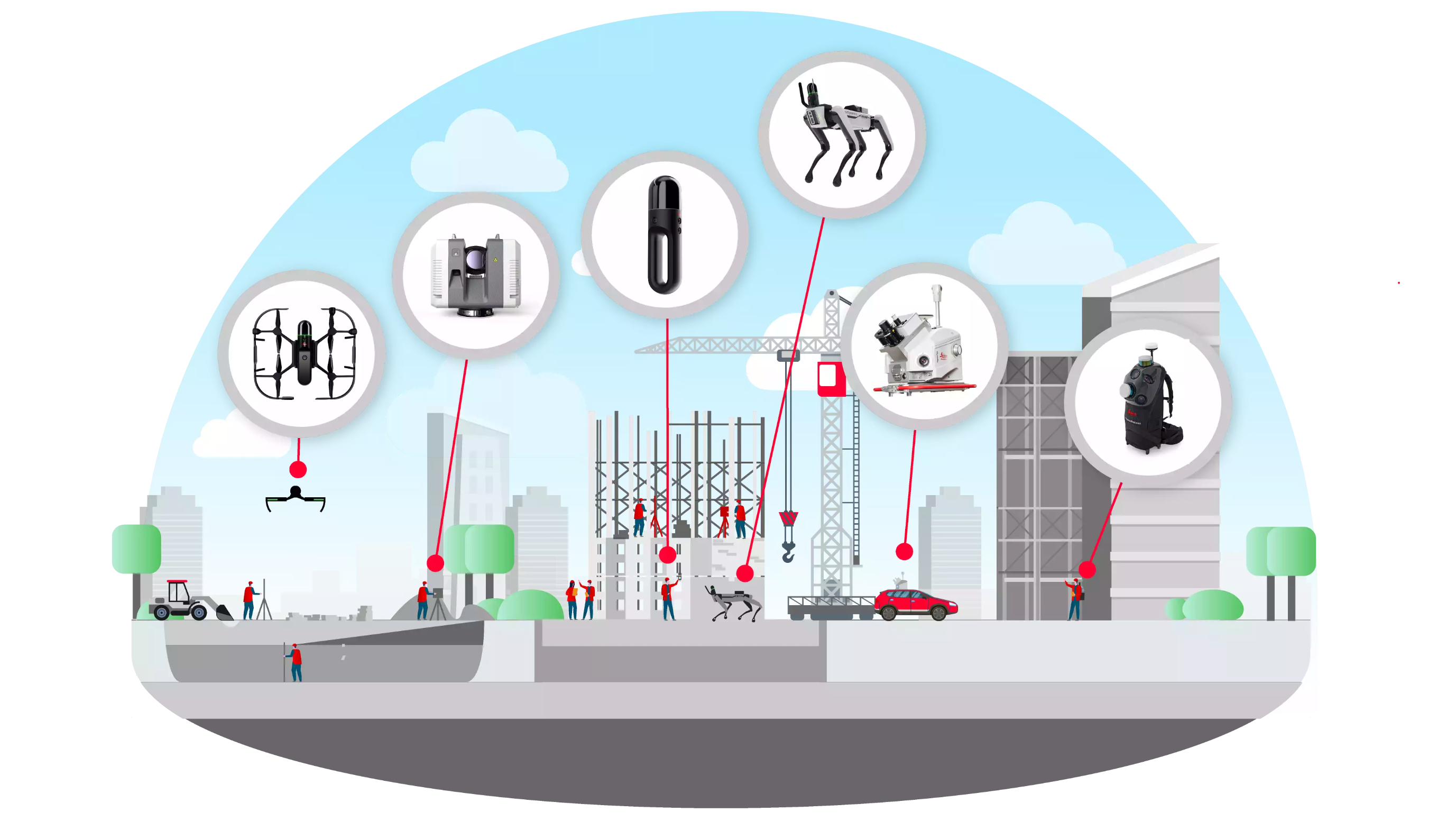
Click on products to learn more.
What are the Benefits of Reality Capture?
Boost Productivity
The Cyclone FIELD 360’s compactness, flexibility and remote-control capability are combined to improve the user’s productivity.
Easier pre-registration
Scan data from multiple setups captured with the RTC360 laser scanner are automatically tracked and processed by the unique Visual Inertial System (VIS) technology.
Data tagging on-site
On-site tagging is fast and simple – tags persist within Cyclone REGISTER 360 and downstream into TruView, JetStream and CloudWorx for seamless integration from field to finished.
How does Reality Capture Work?
Data is captured on-site through the process of photogrammetry, which is taking numerous pictures of an object or a scene from various angles and distances, this can be done using our cutting-edge technologies, such as the Leica BLK360. For effective decision-making, this information can then be distributed via the cloud to team members located anywhere in the world.
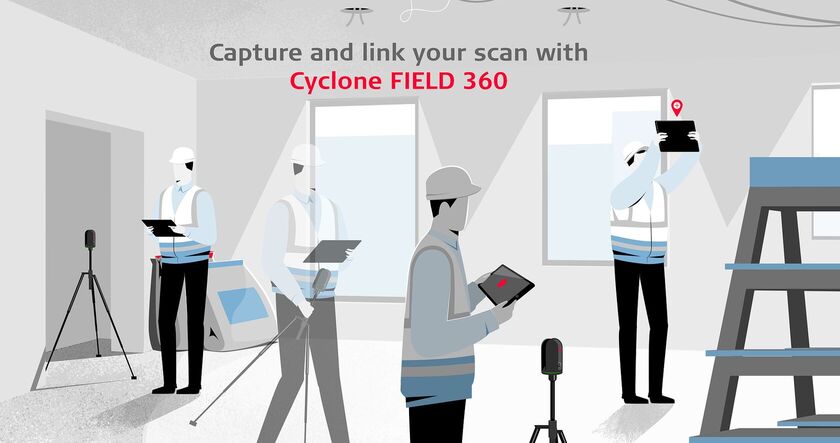
After the data is captured, it is processed to create a 3D model or a point cloud; to help with this, we provide software and office solutions, extracting and recreating the 3D information from 2D is a complex and iterative process that calls for knowledge and close attention to detail, which is where we come in.
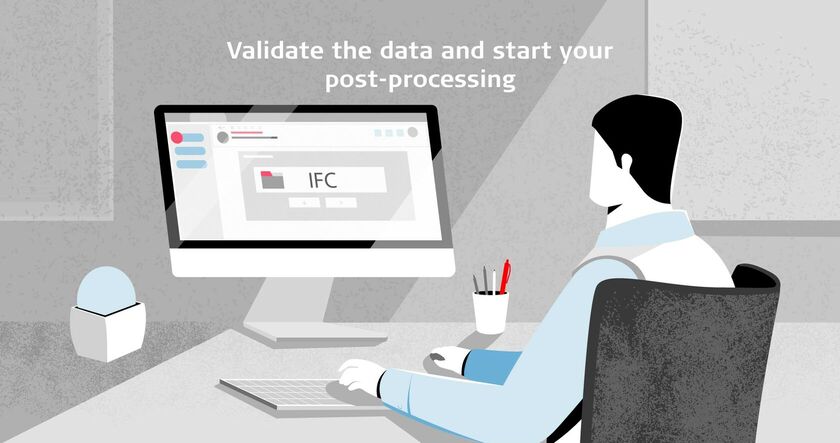
Co-ordination and version control are crucial when multiple disciplines collaborate on a project, and information must always be current. It's critical to keep track of changes, especially if you're sending out files that need automatic synchronization. For these scenarios, Hexagon has developed a solution that manages and centralises data.
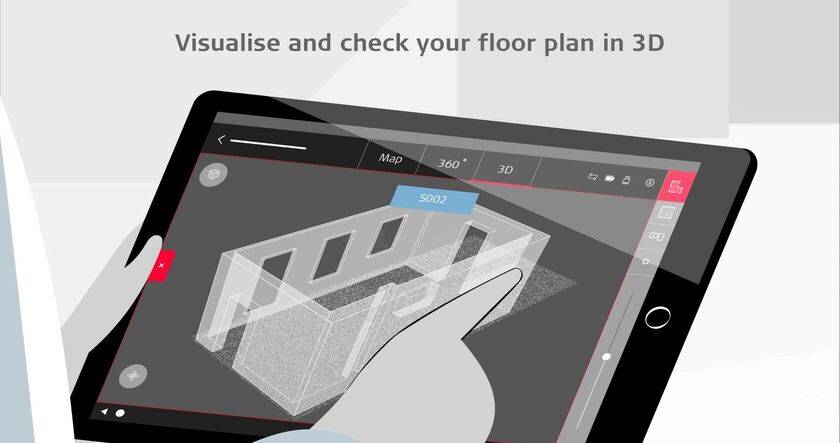
The digital model can be used to increase precision, effectiveness, and creativity in a variety of fields and applications, such as 3D modelling, archaeology, heritage, and architecture. It has the potential to transform the way we work and interact with our physical and digital environments.
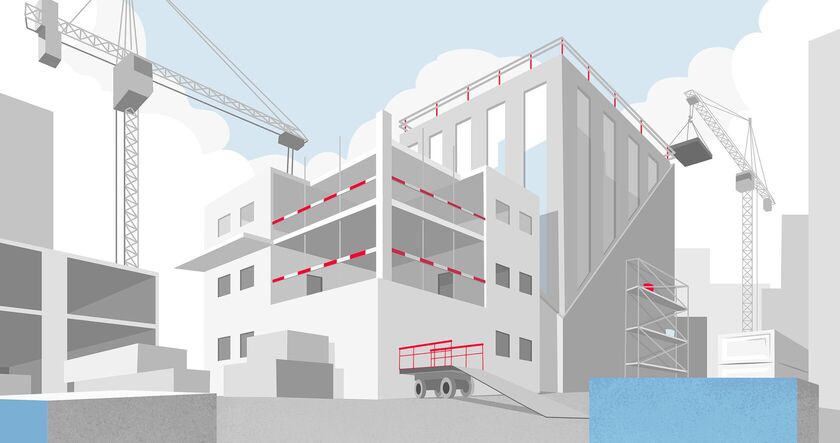
Browse our Range of Reality Capture Technology
What is Reality Capture?
Reality capture solutions visualise any environment as it is so you can model with accuracy and precision, using technology to quickly and cost-effectively create a digital representation of the physical world.


How Can I Use Reality Capture?
We supply a selection of industry-leading scanners and software to industry professionals to create the most realistic digital environment for the most accurate planning.

What are the Benefits of Reality Capture?
Boost Productivity
The Cyclone FIELD 360’s compactness, flexibility and remote-control capability are combined to improve the user’s productivity.
Easier pre-registration
Scan data from multiple setups captured with the RTC360 laser scanner are automatically tracked and processed by the unique Visual Inertial System (VIS) technology.
Data tagging on-site
On-site tagging is fast and simple – tags persist within Cyclone REGISTER 360 and downstream into TruView, JetStream and CloudWorx for seamless integration from field to finished.
How does Reality Capture Work?
Data is captured on-site through the process of photogrammetry, which is taking numerous pictures of an object or a scene from various angles and distances, this can be done using our cutting-edge technologies, such as the Leica BLK360. For effective decision-making, this information can then be distributed via the cloud to team members located anywhere in the world.


After the data is captured, it is processed to create a 3D model or a point cloud; to help with this, we provide software and office solutions, extracting and recreating the 3D information from 2D is a complex and iterative process that calls for knowledge and close attention to detail, which is where we come in.


Co-ordination and version control are crucial when multiple disciplines collaborate on a project, and information must always be current. It's critical to keep track of changes, especially if you're sending out files that need automatic synchronization. For these scenarios, Hexagon has developed a solution that manages and centralises data.


The digital model can be used to increase precision, effectiveness, and creativity in a variety of fields and applications, such as 3D modelling, archaeology, heritage, and architecture. It has the potential to transform the way we work and interact with our physical and digital environments.


Data is captured on-site through the process of photogrammetry, which is taking numerous pictures of an object or a scene from various angles and distances, this can be done using our cutting-edge technologies, such as the Leica BLK360. For effective decision-making, this information can then be distributed via the cloud to team members located anywhere in the world.

After the data is captured, it is processed to create a 3D model or a point cloud; to help with this, we provide software and office solutions, extracting and recreating the 3D information from 2D is a complex and iterative process that calls for knowledge and close attention to detail, which is where we come in.

Co-ordination and version control are crucial when multiple disciplines collaborate on a project, and information must always be current. It's critical to keep track of changes, especially if you're sending out files that need automatic synchronization. For these scenarios, Hexagon has developed a solution that manages and centralises data.

The digital model can be used to increase precision, effectiveness, and creativity in a variety of fields and applications, such as 3D modelling, archaeology, heritage, and architecture. It has the potential to transform the way we work and interact with our physical and digital environments.

